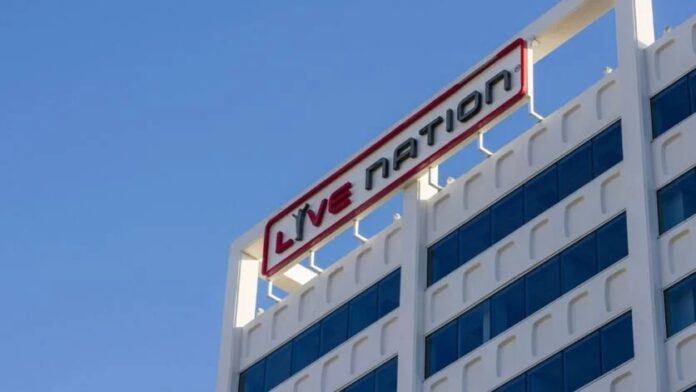Live Nation has filed a motion asking for a quick end to the antitrust case brought by the US Department of Justice against the company and its ticketing arm Ticketmaster.
In a memorandum supporting its motion for summary judgment, lawyers for Live Nation said the DoJ’s case against the company is based on “gerrymandered” evidence that doesn’t meet the legal criteria for monopoly power.
“Plaintiffs opened this case alleging that Live Nation had multiple, self-reinforcing monopolies and had – for fifteen years – engaged in ‘systematic’ and ‘intentional’ corruption of competition across ‘virtually every aspect of the live music ecosystem,’” lawyers wrote in the memorandum filed with the US District Court for the Southern District of New York on Tuesday (November 18).
“Strong words. If there was a lick of truth to them, one would expect plaintiffs to now have mountains of evidence demonstrating monopoly power and the anticompetitive effects of Live Nation’s conduct. And yet, after an 18-month investigation and a year of discovery, plaintiffs have barely a molehill.”
Live Nation’s lawyers asserted that the DoJ massaged data on Live Nation’s market share by excluding larger venues from its measure. It cited the DoJ’s own expert, whose calculations allegedly showed that Live Nation’s 86% market share in primary ticketing services drops to 49% when stadiums are included.
It cited a legal precedent where a court ruled that if an accused monopolist’s market share is less than 50%, “the plaintiff must offer additional evidence that that the defendant is able to exclude competition to avoid summary judgment.”
Using market share as a measure of monopoly power “is conceptually permissible – but only if the relevant markets are properly defined,” the memorandum stated. “Here, the alleged relevant markets are all gerrymandered in obvious and legally indefensible ways.”
The memorandum, which can be read in full here, asserted that the DoJ defined Live Nation’s market in this way “for the simple reason that if they included all major concert venues and the artists that seek to play in them, Live Nation and Ticketmaster’s market shares are too low to infer monopoly power and plaintiffs’ claims fail.”
Furthermore, Live Nation’s lawyers wrote, “Ticketmaster has lost over 30 points of market share since the merger [of Live Nation and Ticketmaster in 2010], a sure sign that it does not have monopoly power.”
“After an 18-month investigation and a year of discovery, plaintiffs have barely a molehill.”
Live Nation
The memorandum also attacked the government’s assertion that Live Nation used its market power to effectively coerce venues into signing exclusive ticketing contracts with Ticketmaster.
“To the contrary, every venue witness has testified that they seek and prefer exclusive ticketing contracts. And there is no competent evidence that exclusive contracting allows Ticketmaster to extract supracompetitive prices from venues, let alone by excluding competition from rivals.”
The memorandum asserts that the claims that Ticketmaster leveraged Live Nation-sponsored shows to secure exclusive ticketing contracts with venues is based on inadmissible hearsay.
“Plaintiffs resort to the testimony of other ticketing companies – not venues – asserting that someone told them that the reason they lost a ticketing contract negotiation to Ticketmaster was that someone else told their counterparty that choosing a different ticketing company would mean the venue would lose Live Nation shows. None of that evidence would be admissible at trial…”
The DoJ filed the antitrust suit against Live Nation and Ticketmaster in May 2024, alleging “monopolization and other unlawful conduct that thwarts competition in markets across the live entertainment industry.”
Earlier this year, federal court Judge Arun Subramanian rejected Live Nation’s attempt to dismiss parts of the DoJ’s case. The judge wasn’t swayed by the company’s arguments against prosecutors’ “tying” claim, which accused Live Nation of forcing artists to use its concert promotion services if they want to perform at Live Nation-owned venues.
Live Nation’s legal problems ramped up in September, when the Federal Trade Commission (FTC) sued Live Nation and Ticketmaster in a federal court in California, alleging that the company violated its own limits on batch purchases of tickets, as it profits from scalping activities.Music Business Worldwide


